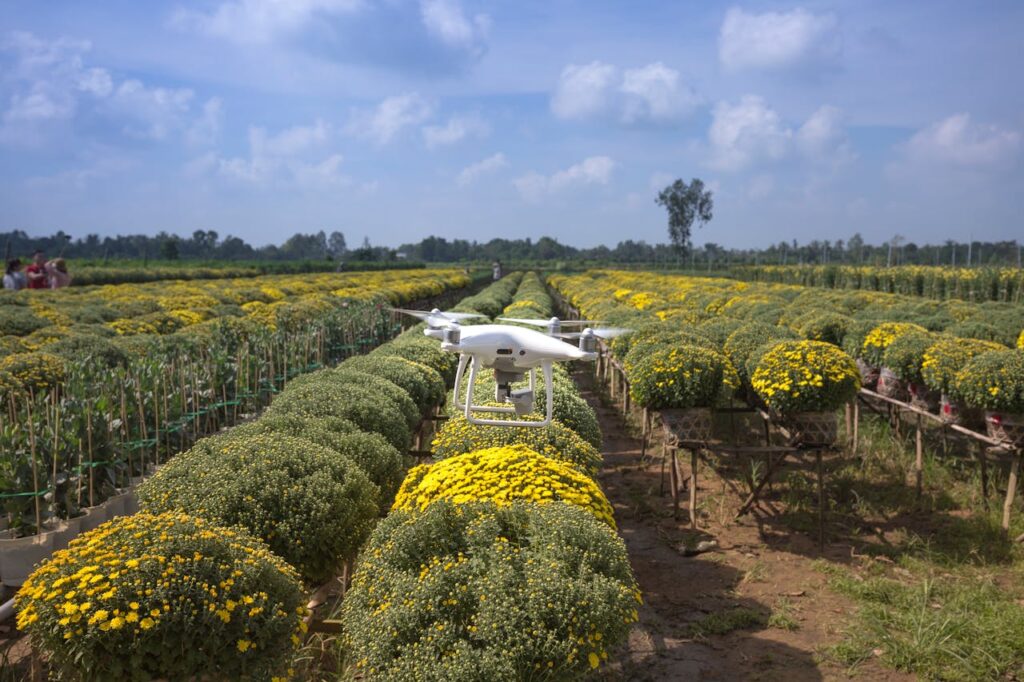Between the 14 and 18 October 2024, the FAO organised the third edition of the Science and Innovation Forum 2024, under the topic “Inclusive Science and Innovation for Agrifood Systems Transformation, Leaving No One Behind” and aligned with the World Food Forum 2024 overall theme of “Good Food for All for Today and Tomorrow”. The Forum aimed to foster dialogue, knowledge sharing, and collaboration among scientists, innovators, policymakers, farmers’ organisations, and stakeholders from diverse sectors. It strived for inclusive discussions and highlights how science and innovation can transform agrifood systems.
“While science, technology, and innovation can revolutionise agrifood systems, they must benefit everyone, especially those too often left behind, like smallholder farmers, women, indigenous people and youth.” – Vincent Martin, Director of the Office of Innovation.
The technical sessions focused on three critical themes: biotechnologies, community-driven innovations, and digital agriculture. These themes were chosen for their key role in transitioning to efficient, inclusive, resilient, and sustainable agrifood systems, as well as for the questions and diverse perspectives they provoke.
How can we address disparities in access to scientific knowledge and technological resources while ensuring equitable participation and benefits for all?
The role of innovation in transforming agrifood systems
Science, technology, and innovation (STI) have a strong potential to reshape global agrifood systems, addressing urgent issues such as climate change, food security, and sustainability. Innovations in artificial intelligence, data analytics, and biotechnology can optimise agricultural productivity, reduce waste, and mitigate environmental impacts.
Leveraging innovations effectively requires strategic foresight, collaborative partnerships, and a commitment to both social and environmental priorities. Tools such as foresight studies and horizon scanning are substantial to monitoring emerging technologies and prioritising those that can drive systemic change in agrifood systems.
Strategic foresight helps anticipate challenges and design solutions that benefit diverse groups within agrifood systems. By envisioning potential future scenarios, policymakers and stakeholders can proactively address critical issues before they escalate, enhancing preparedness and resilience. Assessments help identify which innovations are most likely to succeed with specified timeframes and be appropriate to the evolving needs of different regions and communities.
For instance, a recent study by the FAO and the French Agricultural Centre for International Development (CIRAD) assessed around 200 technologies with the potential to significantly impact food production, processing, and distribution by 2030. The study underlines the importance of relying not only on single technological solutions but also on a suite of complementary innovations in policy, social and financial aspects to address complex agrifood challenges comprehensively.
Challenges in the adoption of innovations and the need for inclusive approaches
Numerous speakers stressed the challenges associated with the widespread adoption of advanced technologies, particularly in regions with limited infrastructure or resources. Technologies like artificial intelligence (AI) or high-tech irrigation systems may offer significant benefits, but their implementation can be hindered by accessibility issues, financial constraints, and a lack of supporting infrastructure, particularly in rural and lower-income regions.
Addressing these challenges requires a collaborative approach that engages a diverse array of stakeholders such as governments, private sector actors, civil societies, and local communities. By working together at co-designing solutions sensitive to regional needs and capacities, this collaboration fosters a more equitable and sustainable adoption of innovations.
Public-private partnerships, in particular, hold a significant potential to boost innovation in agrifood systems by blending financial investments with community engagement. Structured with mechanisms like advanced market commitments, these collaborations can help mitigate financial risks, ensuring that innovations are not only economically viable but also socially and environmentally aligned with the needs of diverse communities.
Inclusivity, cultural sensitivity, and local knowledge
Indigenous communities often have longstanding practices for managing local ecosystems and resources, offering valuable insights that can complement modern technological solutions. Incorporating these practices into STI frameworks not only enhances the effectiveness of these innovations but also builds trust and acceptance within these communities. This approach seeks to build agrifood systems that are resilient and adaptable to unique regional conditions and challenges, such as climate shocks or economic disruptions.
Achieving equity in agrifood systems requires elevating marginalised communities’ voices in the development and implementation of STI initiatives. Through inclusive dialogues, policymakers can ensure that these communities are active participants in shaping the future of agrifood systems and that solutions respect and utilise local expertise.
Stakeholders are encouraged to focus on bridging the digital divide, making digital tools and data access more equitable. For instance, investing in digital infrastructure in rural areas enables smallholder farmers to access critical information, such as climate forecasts or market prices, enhancing their resilience and productivity.
All in all, this Forum called for equitable, resilient and responsive agrifood systems that accommodate a range of social, environmental, and economic conditions. This future-oriented approach, grounded in collaboration, inclusivity, and strategic foresight, is essential for addressing both the technical and social dimensions of agrifood systems. By embracing diverse perspectives and bridging gaps in technology access, the global community can work towards sustainable food security for all.
Written by David Mingasson, SIANI reporter
